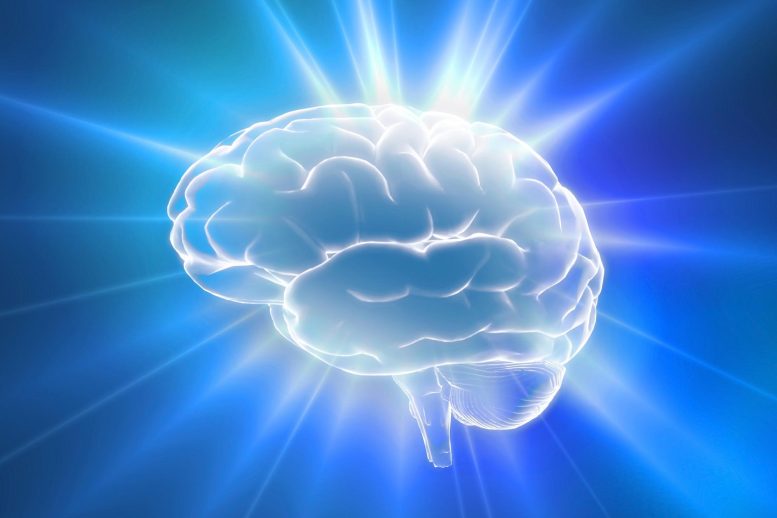
No surprises, but confirmation that what we think we should do actually does make a difference.
Your brain is really rather amazing. Around 100 billion nerve cells collaborate to keep you nimble and quick-thinking.
However, like with the rest of the body, as you age your brain may not be nearly as sharp. You may need to write things down, miss appointments, or have trouble watching TV without straining to understand the dialogue or action.
Fortunately, you can also exercise your brain.
“The keys to our nervous system are the grey and white matter,” says Hermundur Sigmundsson, a professor at the Norwegian University of Science and Technology’s (NTNU) Department of Psychology.
Generally speaking, the white matter provides the contacts between the cells (myelinated axons) and contributes to the transmission speed and distribution of the signals, whilst the grey matter is made up of the nerve cells, or neurons, and dendrites.
Three factors contribute to good brain health
A new study in the journal Brain Sciences brings together a lot of what we know from prior studies on the subject of brain health. The researchers went to great measures to include 101 references to studies on how to maintain the health of our grey and white matter in their theoretical perspective paper.
“Three factors stand out if you want to keep your brain at its best,” says Sigmundsson.
These factors are:
- Physical exercise.
- Being social.
- Having strong interests. Learn new things and don’t hold back from new challenges.
1. Motion
This is probably the biggest challenge for many of us. Your body gets lazy if you sit on your bum too much. Unfortunately, the same is true for the brain too.
“An active lifestyle helps to develop the central nervous system and to counteract the aging of the brain,” according to Sigmundsson and his colleagues.
So it’s important not to get stuck in your chair. This requires effort, and there’s no way around it. If you have a sedentary job, go to school or when you’re done work, you need to activate yourself, including physically.
2. Relationships
Some of us are happiest alone or with just a few people, and we know that “hell is other people” – if we translate writer-philosopher Jean-Paul Sartre’s phrase a little loosely. (Although his version was admittedly somewhat more involved.) But in this regard, you have to steel yourself.
“Relationships with other people, and interacting with them, contribute to a number of complex biological factors that can prevent the brain from slowing down,” says Sigmundsson.
Being with other people, such as through conversation or physical contact, supports good brain function.
3. Passion
This last point may have something to do with your personality, but if you’ve read this far, chances are good that you already have the necessary foundation and are probably willing to learn.
“Passion, or having a strong interest in something, can be the decisive, driving factor that leads us to learn new things. Over time, this impacts the development and maintenance of our neural networks,” Sigmundsson says.
Stay curious.
Don’t give up and just let everything run its course the same way all the time. You’re never too old to do something you’ve never done before. Maybe now is the time to learn to play a new musical instrument.
Use it or lose it
Sigmundsson collaborated with master’s student Benjamin H. Dybendal and associate professor Simone Grassini at the University of Stavanger on the comprehensive paper.
Their research thus presents a similar picture for the brain as for the body. You have to exercise your brain so that it doesn’t decay. “Use it or lose it,” as the saying goes.
“Brain development is closely linked to lifestyle. Physical exercise, relationships, and passion help to develop and maintain the basic structures of our brain as we get older,” says Sigmundsson.
These three factors thus offer some of the keys to maintaining a good quality of life – and hopefully – aging well.
Reference: “Motion, Relation, and Passion in Brain Physiological and Cognitive Aging” by Hermundur Sigmundsson, Benjamin H. Dybendal and Simone Grassini, 24 August 2022, Brain Sciences.
DOI: 10.3390/brainsci12091122
6 Comments
Thank you very much for all the useful information
It is good to realise that the process of ageing is becoming increasingly well understood and that 74 Yr olds, such as myself, are undertaking to implement the advice in this article with the aim of a longer and fuller life
I don’t know about all that. Many people are in long lasting relationship or married and still get Alzheimer’s. Rich like poor are not exempt from Alzheimer’s once you’re an advanced age. Exercise may help to keep the memory strong but there’s no proof that having an active life will prevent any form of dementia
It does and work like that. The article doesn’t say that every person physically active will not get dementia. The point is that exercising reduces risks on average in the population, so in general it is beneficial, but it doesn’t protect every single person. There are too many other factors influencing Alzheimer’s to make physical activity one single perfect cure.
Relacionamentos duradouros ou pessoas casadas, não significam que sejam relacionamentos “saudáveis”, isto é, que haja diálogos saudáveis, estimulantes e que permitem a “curiosidade”, que o parceiro se estimulem adequadamente, diálogos construtivos e edificantes, boa partilha de conhecimento, etc. O que o estudo tenta explicar é que diálogos saudáveis, instrutivos e de boa partilha e convivência com outros, em conjunto com as outras duas práticas, ajuda na estimulação do cérebro. Somos um todo, interessa ter estás 3 que referem no estudo postas em prática e não somente uma, mas sim as 3 que se complementam, sendo elas muito importantes e não colocando nenhuma delas de parte! Cumprimentos e boas festas!
Now it is time for researchers to conduct a research how meditation help to improve the brain functions as in many countries people practiced
meditation at its heighest level lived longer.